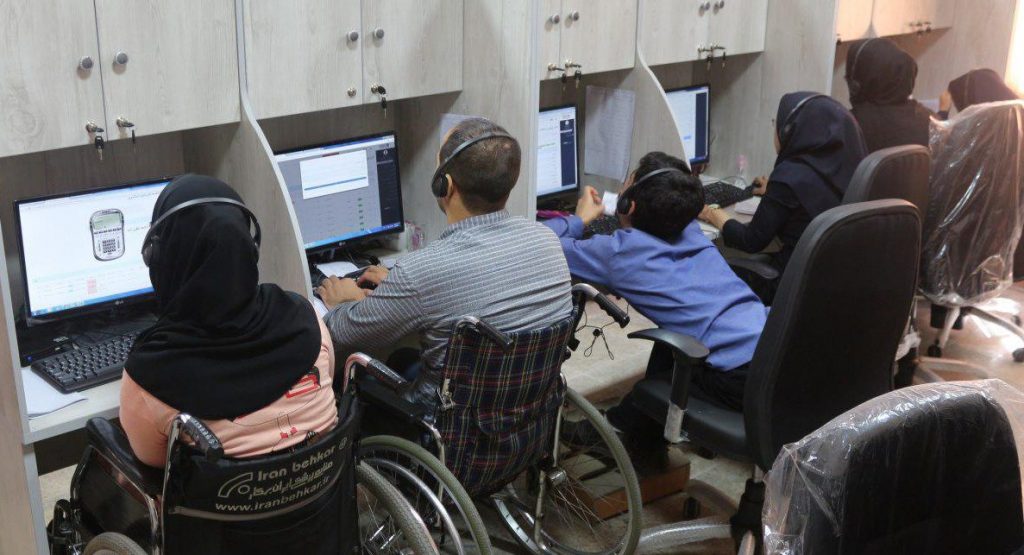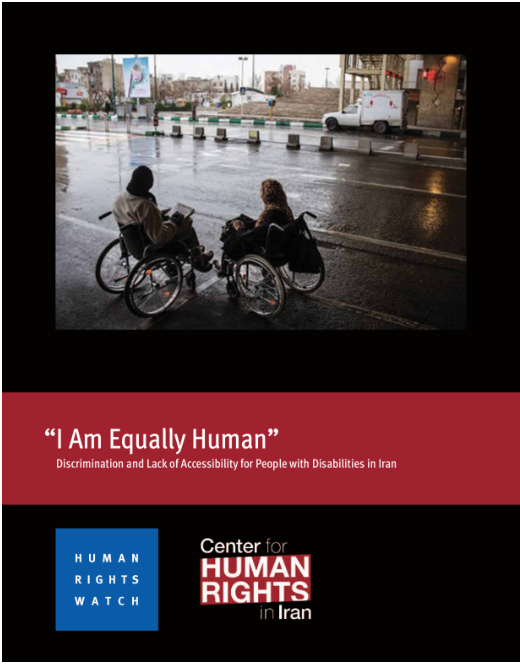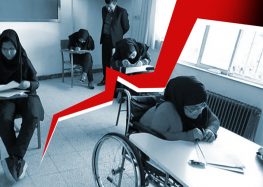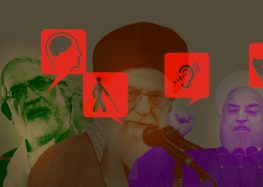Welfare Reps Presence Required at Job Interviews for People with Disabilities

New Requirement Meant to Address Employment Discrimination against Persons with Disabilities
In response to criticism that persons with disabilities are not getting three percent of jobs allocated to them by law, Iran’s Administrative and Recruitment Organization (ARO) issued a directive on August 27 requiring state agencies to conduct interviews with applicants with disabilities only in the presence of a representative from Iran’s State Welfare Organization (SWO).
“The presence of SWO representatives during job interviews is a good step forward because the majority of complaints I hear from my disabled friends are related to job interviews,” said an attorney who has represented several cases involving people with disabilities in an interview with the Center for Human Rights in Iran (CHRI).
He continued: “There are people who go through all the trouble of taking the state employment tests and getting accepted for job interviews and then when the employers see their disability they refuse to hire them. Now we can be hopeful that the presence of SWO representatives in job interviews would prevent arbitrary decisions and ensure compliance with the UN’s Convention on the Rights of Persons with Disabilities (CRPD).”
Unemployment is one of the most important problems facing individuals with disabilities in Iran. Approximately 60 percent of such persons lack jobs, according to the SWO director, Anoushirvan Mohseni Bandpey.
The allocation of three percent of all state job positions to persons with disabilities was first introduced in the 2004 Comprehensive Law for the Protection of the Disabled (Article 7) and most recently in the 2018 Law for the Protection of the Rights of Persons With Disabilities (Article 15).

The 72-page report, “‘I Am Equally Human’: Discrimination and Lack of Accessibility for People with Disabilities in Iran,” documents the everyday barriers people with disabilities meet when going to government offices, healthcare centers, and when using public transportation.
Nevertheless, people with disabilities in Iran have frequently complained that this provision in the law is not being implemented. For example, in July 2018 a video clip was shared on social media showing an interview with a visually impaired person on Iran’s state television in which he said he had taken first place in the written state employment exam but state organizations had turned down his job requests on the basis of excuses such as his inability to drive or to be at work on time.
One of the latest instances of discrimination against individuals with disabilities was in May 2018, when the guidelines for applicants to attend the education ministry’s national employment exam effectively barred people with visual and hearing disabilities.
In response, a group of persons with disabilities wrote an open letter to Iran’s President Hassan Rouhani calling for the exam to be halted and guaranteeing that three percent of state jobs would be given to people with disabilities.
The letter said: “State agencies have refused to implement this requirement under various excuses. All you need to do is a simple investigation to see that people with disabilities have gotten much fewer jobs than the three percent allocated to them. Even the Administrative Court has issued verdicts against the education ministry for its discriminatory behavior toward persons with disabilities.”
The National Organization of Educational Testing went ahead and held the test for the education ministry’s job applicants despite its discriminatory requirements but the widespread subsequent discussions in society over the three-percent job allocation requirement for people with disabilities led to the ARO’s decision to oblige state agencies to conduct job interviews with individuals with disabilities in the presence of a representative from the SWO.
An advocate of the rights of persons with disabilities told CHRI: “The implementation of this directive depends on several factors. Firstly, persons with disabilities seeking state jobs should be aware of this directive and ask for a SWO representative to be present during their interviews, otherwise they should refuse to do the interviews. Secondly, the SWO representative should have a good understanding of the law so that his presence in the interview would be meaningful.
“But ultimately, I think that the most important factor that would help the employment chance of people with disabilities is a change in the way employers look at the abilities and equal rights of individuals with disabilities, and creating a workspace that is accessible for them and allows them to carry out their tasks.”






